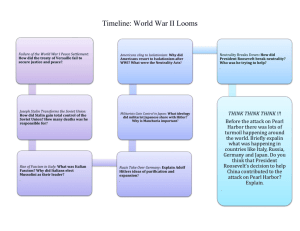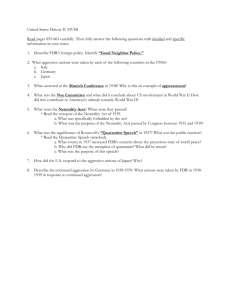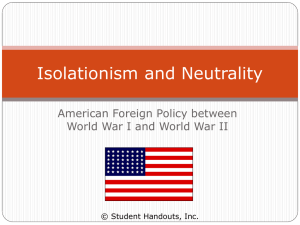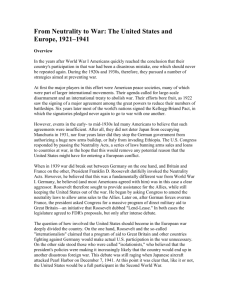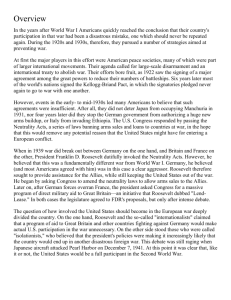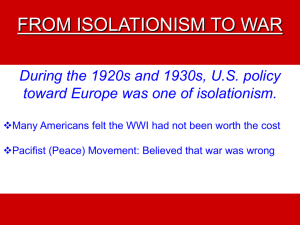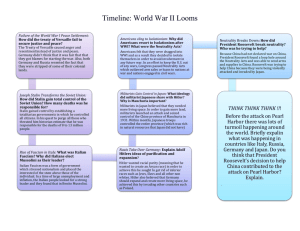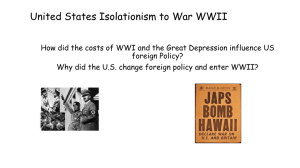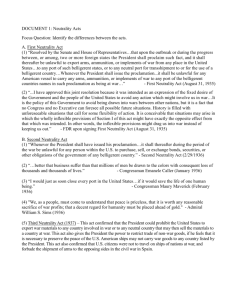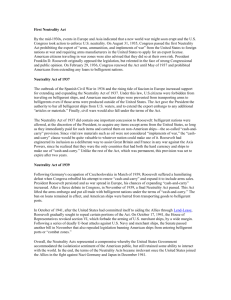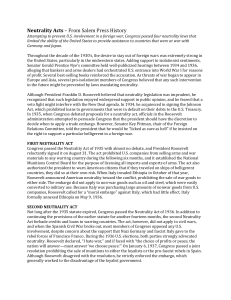Pre-War American Neutrality
advertisement
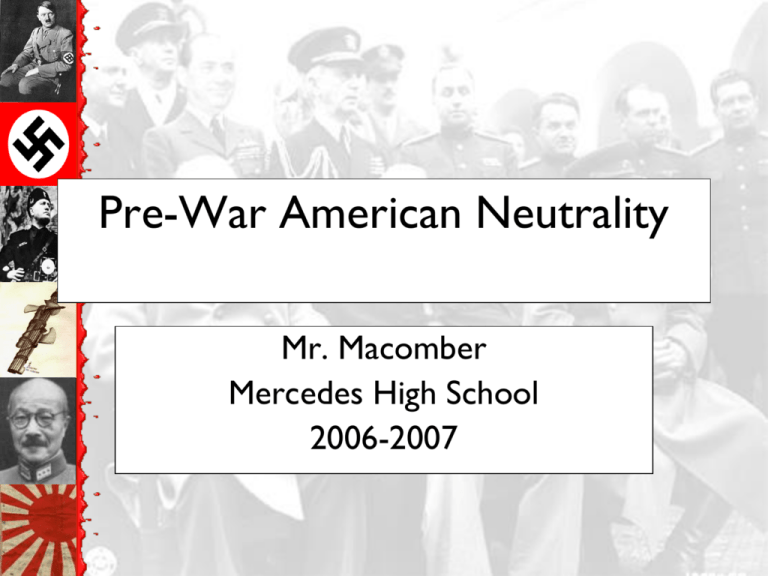
Pre-War American Neutrality Mr. Macomber Mercedes High School 2006-2007 Supporting Isolationism • The rise of dictatorships in Europe and Asia after World War I, the refusal of European countries to repay war debts owed to the United States, and the Nye Committee findings that arms factories made huge profits caused Americans to support isolationism. Depression & WWI Debt • The Great Depression and made it harder for many European nations (such as Britain) to pay back their WW I loans • Only Finland continued to pay • The Dawes Plan was put into effect in 1924 • In 1930 Herbert Hoover proposed a debt moratorium Nye Committee • The Senate’s Nye Committee inquiries of 1934-1936 reinforced popular perceptions that U.S. involvement in World War I had been a blunder. • The report suggested that American policy had been manipulated by so-called merchants of death —bankers and munitions makers who lusted for wartime fortunes who lent money to the allies Neutrality Laws • Many Americans wanted to avoid international commitments • Congress passed the Neutrality Act of 1935 making it illegal for Americans to sell arms to any country at war. • Congress passed the Neutrality Act of 1937, which continued the ban of selling arms to countries at war and required warring countries to buy nonmilitary supplies from the United States on a “cash and carry” basis. Spanish Civil War • The Spanish Civil War, which lasted from July 17, 1936 to April 1, 1939, was a conflict in which the Nationalists, led by General Francisco Franco, defeated the Republicans or Loyalists • The Republicans received weapons and volunteers from the Soviet Union,, while the Nationalists received weapons and soldiers from Italy and Germany • The United States maintained strict neutrality even though American volunteers illegally fought for the Republicans Roosevelt & Internationalism • President Franklin D. Roosevelt supported internationalism • Internationalists believe that trade between nations creates prosperity and helps to prevent war. The Axis • Japan aligned itself with Germany and Italy in 1937 as part of the Anti-Comintern Pact, and these three countries became known as the Axis Powers after Japan signed the Tripartite pact in 1940. • After Japan launched a full-scale attack on China in 1937, Roosevelt authorized the sale of weapons to China, saying that the Neutrality Act of 1937 did not apply, since neither China nor Japan had actually declared war. FDR- Quarantine Speech • On Oct. 5, 1937, President Franklin D. Roosevelt delivered his famous "Quarantine Speech" in which he denounced the international lawlessness of aggressor nations and said that a way would have to be found to curb them. • Japan was not specifically mentioned but the President's speech was obviously aimed squarely at that nation: • “When an epidemic of physical disease starts to spread, the community joins in a quarantine of the patients in order to protect the health of the community against the spread of the disease….War is a contagion, whether it be declared or undeclared….there is no escape through mere isolation or neutrality”
